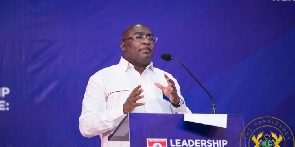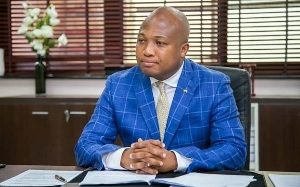The impending 2024 electoral contest in Ghana transcends mere ideological skirmishes, evolving into a battle of distinct personalities and leadership styles. The political arena is charged, with both the ruling and opposition factions strategically positioning themselves to either maintain their hold on power or orchestrate a formidable comeback.
The National Democratic Congress (NDC) enters the fray with a familiar face, their 2012 flag bearer, who previously served a term as President. Despite suffering defeats in the 2016 and 2020 elections, former President Mahama is poised to once again test the waters of his popularity and leadership acumen.
In the aftermath of the COVID-19 pandemic, which severely impacted the nation's economy, the New Patriotic Party (NPP) has placed its confidence in Bawumia, encapsulated in their rallying cry of 'breaking the 8'. In an environment marked by economic uncertainties, Bawumia faces a challenging campaign against Mahama. However, Bawumia's reputation, bolstered by a blend of compelling personality traits and innovative ideas, positions him favourably in the 2024 electoral race. While Mahama brings certain strengths to the table, his approach lacks the freshness required to convincingly persuade the populace to entrust him with the task of revitalizing Ghana's economy.
Bawumia, who has been in the political spotlight since his debut as a vice-presidential candidate in 2008, exudes a mix of approachability and intellectual rigour, particularly in policy formulation and execution. His tenure as Vice President since 2016 has not only enriched him with invaluable experience but also instilled a resilience essential for navigating the most challenging economic circumstances. His contributions to the current administration, especially in spearheading Ghana's digital transformation, have been noteworthy. This initiative, eluding even the most prominent civil society organizations, demonstrates his visionary leadership.
As Ghana grapples with combating corruption and ensuring fair distribution of national wealth, Bawumia's digitalization agenda, aiming to achieve over 70% implementation, promises substantial benefits and breakthroughs. His potential presidency offers an opportunity to assemble a team capable of guiding Ghana through its economic challenges. His intelligence, untainted by partisan biases, exemplifies his dedication to steering the country out of economic difficulties. On the contrary, advocating for Mahama's return seems to signal a regression to antiquated methodologies and reliance on a leadership style heavily influenced by partisan interests. His proposal of a 24-hour economy, devoid of a robust digital framework, appears unconvincing.
In sum, Bawumia emerges as a leader whose strengths and visionary approach considerably outweigh any flaws, embodying not just leadership but a vision in and of himself. While no leader is devoid of imperfections, Bawumia's commitment and comprehensive vision hold the promise of a transformative era for Ghana.
Isaac Ofori Human Rights Advocate BA, MA, MPhil, PhD Student (UEW, SCMS)
Opinions of Tuesday, 23 January 2024
Columnist: Isaac Ofori



















